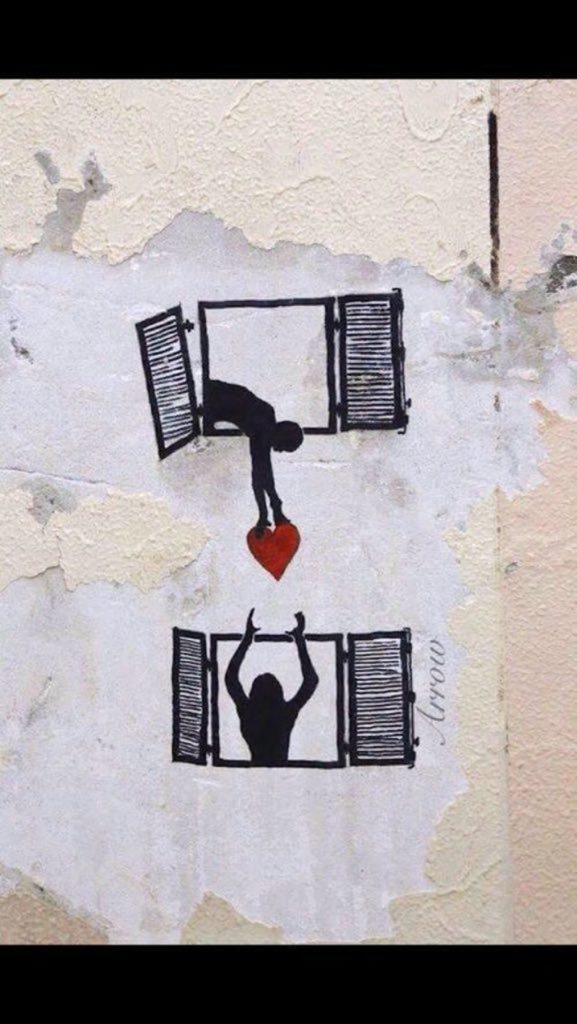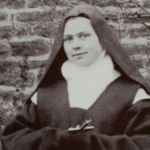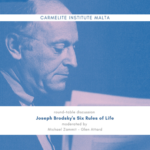Courses & Seminars 2021-2

A pdf document of this page is available for download at the bottom of this page.
Dear friends,
As we approach the beginning of another academic year, we are glad to present another set of monthly events organised by the Carmelite Institute Malta. It has been thought that, for this year, we spread our horizon beyond Carmelite themes and spend time to reflect on spiritual themes that touch directly on the current state of affairs in the world. To be clear, it is not our intention to engage in partisan politics or to try to offer global solutions. Far be it from us to tackle subjects that far exceed the realm of spirituality. But it is our assured hope that we respond to the world we are living in by addressing the spiritual values that are being shed into light, faithfulness to the Christian values amid great uncertainty, dialogue between the world’s spiritual traditions as a sign of our common will for greater peace and reconciliation among peoples, addressing the potentially abusive role of spiritual directors and how to prevent it, and, finally, witnessing to the Gospel values in our common ecological home.
All activities organized by the Institute are at a nominal fee of €5 (per activity), which is paid upon registration. Details of payment will be made available to those who contact us and/or register.
It has been decided that until further notice is issued by the Ministry of Health all activities will be held online (via Zoom) due to the Covid-19 pandemic. Should we come to a point during the year that it would be safe to organize hybrid events (wherein events could take place onsite but simultaneously streamed online), we will let you know accordingly. Registration via the Institute’s email (given below) is obligatory for those wanting to receive links for each webinar.
Below are the activities that are being organised throughout the academic year:
15-16, 22-23 October 2021
Short Online Course on “Risks of Spiritual Abuse in Spiritual Direction”
Hannah Schultz
There exists in spiritual direction the occasional and subtle risk of “spiritual” abuse, i.e., not sexual, not physical, not verbal, but “spiritual” abuse, although it could potentially involve some of these. This happens when the relationship between director and directee is characterized by some kind of coercion, whether conscious or unconscious. Spiritual abuse is complex. Since a living spirituality affects people in their whole being, spiritual abuse can also affect all humanity: emotions and thoughts, beliefs and values, the way we act, and the way we build relationships. Typical in abusive systems are confusion, ambiguity and subtle or perverse manipulations. Those affected gradually lose their capacity for judgement and trust in their own perceptions. This is why it is so difficult to clearly recognize spiritual abuse and to put it into words. With different definitions, diverse aspects of the topic are shown and spiritual abuse is defined in the broad and narrow sense. In a second part, the inner dynamics of abusive relationships and groups are explained by showing structures of emotional abuse and typical forms of (Christian) thought reform. In abusive systems, different roles exist: perpetrator, victim, spectator, church leadership and those who help the victims. Every perspective implies different forms of responsibility, dilemma, and range to react. This differentiation allows us to see clearly which means of prevention, countermeasures and treatment can and should be undertaken. Ignatian spirituality offers a wide range of spiritual help to support (former) victims in their search for inner freedom. This course is open only to spiritual directors.
18 December 2021
Webinar on “Reading a spiritual experience through speech: Joseph Brotsky (1988)”
Michael Zammit
“Life is a game with many rules but no referee. One learns how to play it more by watching it than by consulting any book, including the Holy Book. Small wonder, then, that so many play dirty, that so few win, that so many lose.” These opening lines of the remarkable but provocative commencement speech delivered by the Russian thinker Joseph Brotsky (24 May 1940 – 28 January 1996) at Ann Arbor Stadium, Michigan, to the graduating class of 1988, offers a most valuable lesson on good personhood and the meaning of life. “Of all the parts of your body, be most vigilant over your index finger,” he continues, “for it is blame-thirsty. A pointed finger is a victim’s logo.”
14-15 January 2022
Webinar on “The Holy Spirit in the Spiritual Life”
Charlò Camilleri
The spiritual life is life lived in the spirit. But more often than not, although it is far too obvious what this statement means, it is much less so when it comes to vocalising what “spirit” or “Spirit” we are referring to, what role He has within the Trinity, what part He plays in our lives, and how, if at all, can we discern the signs of His presence. The goal of this webinar is to understand the Holy Spirit of God, his godly nature, his role as Sanctifier, and mission of bringing unity amid a diversity of charisms in the Church.
18-19 February 2022
Webinar on “Henri le Saux OSB (1910-1973): Identity and Spirituality”
Glen Attard, Michael Zammit, Charlò Camilleri, Yann Vagneux
This little-known French Benedictine monk who spent his life between France and India, Henri le Saux, sought to understand and celebrate the spiritual foundation which moves human life. Firmly anchored in the monastic tradition, he then reached out to other monastic traditions of the world with whom his spiritual life, rather than being closed off, was enriched interreligiously. Despite the diversity of monastic traditions, his experience in India led him to the firm belief in the common unity that exists beneath all these traditions. So, what is at the core of the monastic spiritual experience? How do the values lived by Jesus Christ place in the heart of humanity rather than separate us from them? Henri le Saux’s answers are simple but deeply profound. In 1967, he wrote, “Indeed, there are no part-time contemplatives, any more than there are part-time Christians or part-time men. From the day we begin to believe in Christ and to acknowledge him as our Lord, there is not a single moment of our time which is not marked by the claim of God upon us, which has not to be lived in the name of Jesus, under the inspiration of the Holy Spirit, to the glory of the Father.”
4-5 March 2022
Webinar on “L-Esperjenza Spiritwali tal-Prof. Oliver Friggieri”
In collaboration with L-Akkademja tal-Malti and Id-Dipartiment tal-Malti
The worldview one embraces shapes the spirituality one personifies. Both of these make up our principles, unnegotiable tenets and ways of life which form the basis of our existence. Seeing Malta change drastically throughout his long career, Prof. Oliver Friggieri didn’t shy away from presenting his worldview where God and religion have a significant role in his literary work. Friggieri’s spirituality, in fact, is undoubtedly religious; but it doesn’t mean it’s not critical also of religion. He is at pains with what is false in the world and, re-addressing important issues, his spiritual call was to attract us towards higher values. This seminar purports to approach Friggieri’s worldview from the perspective of spirituality, presenting emerging themes from the profuse legacy of writings he bequeathed to his nation. From this perspective, given Malta’s contemporary context, it will be argued how Friggieri and his message are highly relevant in the present day and age. The webinar will be delivered in Maltese. If the situation permits, the event will take place onsite on Saturday 5 March 2022 at the Carmelite Priory in Mdina. Confirmation of whether the event will be onsite or online will be given closer to the date.
22-23 April 2022
Webinar on “The Metaphor of the Garden in the Spiritual Life”
Mario Gerada
The metaphor of the garden is a staple image which is meditated upon in all the major spiritual traditions of the world. Principally a metaphor for growth, the garden symbolises the activity of the soul receiving its life from God. As a place of quiet and rest, the garden also symbolises the soul’s rest in God. The structure itself, generally with a well at its centre, possibly a strong influence from the ancient Persian gardens, symbolises the fount of life which takes us back not only to the Book of Genesis but also into other religions, like Islam and Judaism. The metaphor of the garden also places us in the natural world wherein our common home lies, and whose needs surpass those of the spirit, and urges us also to concrete, radical, humanitarian, and ecological interventions.
21 May 2022
Webinar on “A Hidden Life: The Life of Bl. Franz Jägerstätter (1907-1943)”
Glen Attard, Warren Borg Ebejer
A conscientious objector to Hitler’s Socialist Nazism, this Austrian farmer, husband and father of four children, was executed because, upon being convened for military service in Hitler’s army in 1940, he refused to take the unconditional oath to Hitler. His decision was no easy feat. Franz lays down the motives of his actions in detailed records. He sees it a personal fault to fight along and kill people so that the Nazi regime can win and subjugate more and more peoples. Franz prays, fasts and consults. He also asks the Linz diocesan bishop Joseph Calasanz Fließer for his opinion. Fließer thinks that as a family father it is not Franz’s business to decide whether the war is fair or unfair. Franziska Jägerstätter, his wife, accompanies her husband to Linz, although she does not participate in the conversation. She remembers the moment when her husband comes out of the bishop’s consultation room: “He was very sad and said to me: ‘They don’t trust themselves, otherwise it will be their turn.’ Franz’s main impression was that the bishop did not dare to speak openly because he did not know Jägerstätter; he could also have been a spy.” The discernment of Bl. Franz Jägerstätter, carried out in the most trying of times, sheds light on how difficult, uncertain, and not straight-forward at all his decision to remain faithful to the Christian values truly was.
17-18 June 2022
Webinar on “Reading a spiritual experience through visual art”
Glen Attard
One of the many media for experiencing the spiritual realm is art: portraiture, landscapes, abstract, etc. While it can be all too easy to decipher a religious experience in a saint’s portrait, or a representation of Christ, discerning one in ‘profane’ art could be more challenging. However, the task of spirituality is to train the eye to seek God even in the profane, so that, like in the Middle Ages, the boundary between sacred and profane art is not so clearly cut. Seeking to nourish one’s spirit through art, one learns to see, to read, to create, to be in union with, to be open to, to let oneself experience newness and unexpectedness. In fact, in Joseph Backstein’s words, this is what makes good art. Its transformative, transubstantiative element, simply put, “the artist’s magical touch, sprinkling the gold dust of creation and invention over a previously inanimate, dull object so as to endlessly renew and endow it with the timeless, auratic mystery of value.”
27 July 2022
Book launch of “Titu Brandsma: Antoloġija”
Edited by Glen Attard
Several texts of the Carmelite journalist and martyr Bl. Titus Brandsma (1881-1942) are being translated and published for the first time in Maltese. A book launch will celebrate not merely this project but, more importantly, the life and heroic virtues of this saint in our times. The event will be conducted in Maltese. A separate programme of the event will be provided closer to the date.
Some events are spread between Friday evening and Saturday morning, while others are taking place only on Saturday morning. The programme that will be followed, depending on which days the event will take place, is thus:
Friday
18:00 – 19:00 Session 1
19:15 – 20:00 Session 2
Saturday
09:30 – 10:15 Session 1
10:30 – 11:15 Session 2
11:30 – 12:15 Session 3
To remain in closer contact with the Institute and the Carmelite Priory in Mdina, follow us on our website and on our Facebook page (see document below) where more regular updates throughout the year will be given on each and every event.
For more information about the above activities contact us via the details below.
Address: Carmelite Institute
c/o Carmelite Priory
Villegaignon Street
Mdina MDN 1190
Website: istitutkarmelitan.com
Email: istitut@karmelitani.org
Facebook: Carmelite Priory Mdina
Telephone: +356 2145 4524
Mobile: +356 7970 4697


